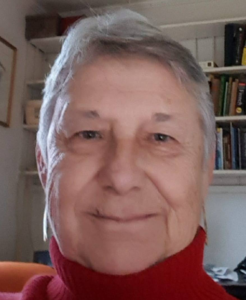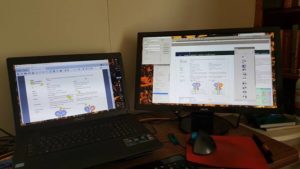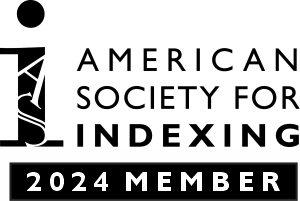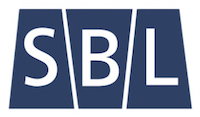We are happy to report that we have a new PI Partner in Anne Fifer. We’d love to have you get to know her through this blog interview!
 Your Business
Your Business
PI: How long have you been doing indexing?
I started indexing in 2008 part-time while teaching medical terminology at a local community college. I was able to do full-time indexing starting in 2014.
PI: Tell us your origin story. All superheroes, including indexers, have an origin story. And I know you are also a doctor and beekeeper, so, fill us in on your varied background, please!
My origin as an indexer came after I was no longer in medical practice. I did some medical transcription and was looking for a particular, very basic text in the index of a book. No matter where I looked I couldn’t find it. Frustrated, I was likely muttering under my breath that I could do a better index myself. Then I realized I had no idea where indexes really came from. Thanks to Google, I found the American Society for Indexing (ASI). The rest is history.
PI: What are your specialties and/or favorite subjects?
I have done a variety of things—books on yoga, collectible cars, arctic exploration, self-help, but medical is my specialty. It’s hard to pick a favorite though because one of the delights of indexing is the potential for variety. However, cookbook or culinary art/food science is also an area I would like to do more in.
PI: Pick one of your favorite subjects and tell us why it fascinates you.
I think that neuroscience is my favorite. I love delving into the research at levels from the behavioral to the cellular. It’s an area that brings together so many disciplines: psychiatry, basic and applied research in neurology, and medicine.
PI: What’s your best productivity or indexing secret tip (that you are willing to share, that is)?
Starting an index with a sound structure and overview of the material. That keeps me organized as I then go into more detailed, granular entries.
PI: What do you consider the most challenging aspect of the work?
I think that different books present different challenges so I cannot really give a single thing. For some books it may be trying to reflect the author’s positions accurately and concisely—partly by selecting words and phrases that are accurate but not letting my biases show.
In detailed research books, it may be deciding what not to index, especially if there is limited space for the index.
In others, tracing an author’s concepts from inception to current status especially when terminology changes or evolves over time.
PI: Where do you usually work? (Please include a photo of your office setup unless it’s a secret superhero location)
I work in my in-home office most of the time. I don’t do well on the deck or in the living room because it’s too easy for me to be distracted. I do occasionally take my tablet outdoors when I get down to the very granular level where I want to do some highlighting for textual details, but that’s rare—again I get distracted too easily.


PI: Talk about your process (and this can be for book indexing or other related projects, like keyword tagging, embedded indexing, etc.). Any advice for other professionals—new and experienced?
My process always begins by developing an over-all structure for my index. That means that I need to get an overview of the entire book. For some technical books that can start with data entry using chapter headings, subheadings, and working down each level until I’m actually reading the text. For other books without as much inherent structure, I get my overview from reading introductions and the author’s conclusions, i.e., if there is a summary or conclusions section. Then I’ll work through the text at a more granular, textual level. I use the same approach if I am doing and embedded index—I much prefer to write the index, then do the mechanics of the embedding separately. Again, it is a concentration thing—I can pay attention to organization and phrasing and not be distracted by the mechanics.
PI: What are your favorite/most-used tools, for indexing or other business purposes?
Other than my indexing software, my favorite tools are my online references. My medical dictionary is an obvious one—I like it online because of the constant updates. I feel it’s important to have the most up-to-date references possible. Online references, for me, are much faster to use than stopping to pick up a book and look something up. The internal links make for easy information retrieval—e.g., my electronic medical dictionary provides links to the MeSH listing.
PI: CINDEX, SKY or Macrex (or other)? What do you like best about your choice?
I’m a SKY Index Pro (v.8) user, although I used CINDEX for a few years. I appear to have a spreadsheet mentality and feel more at home with that. Some of the things I particularly like about SKY are being able to do manipulation on multiple records at one time, and the generous number of labels that are available. Being able to do editing in a way that resembles a word-processing program is another big plus, as well as spell-checking right in the program.
PI: If you could only recommend one book about indexing, what would it be?
We all need Mulvaney and Browne, but I think the book that had the biggest effect on my indexing was Do Mi Stauber’s Facing the Text.
Personal Perspective
PI: Where do you live (just approximately, since this will be published on the Web)? And if you like, tell us a bit about your surroundings and folks you live with (including furry friends) if you wish.
I live in Durham, North Carolina, in a suburban area that has a real “outdoor” feeling so that when the weather is nice I can have doors and windows open to listen to birds and enjoy fresh air and sunshine. I share the house with a fur person who goes by the name of Frankie—a large, ginger tabby cat who kindly allows me to share his space.
PI: Tell us about your hobbies. Are there specific ones you turn to as a break from work, or any that are a special treat in between or at the end of projects?
My hobbies include painting (acrylics) which I seem to have trouble finding time to do, cooking (and eating), blogging, and beekeeping. When I need a break, in warm weather, I’m likely to be found sitting out by the beehives taking in the sun, the smell of honey and beeswax, and listening to the soothing hum of a busy hive.
In colder weather, I’m likely to pick up a sketch pad, do some birdwatching at the feeders that I have out, or go to the kitchen and cook something.
PI: What’s the last book you read for fun?
I love mysteries so that is likely to be my choice for fun (particularly British and Scandinavian). The last one was The Shadow District by Arnaldur Indridason.
PI: What’s your superpower?
I’d have to say that I’m a bee whisperer!
___________________________________________________
Anne Fifer began freelance indexing in 2008 and has been full-time since 2014. She indexes trade books, encyclopedias, and medical books of various levels.
Her education includes a PhD in psychology and DO with specialty in neurology. She served on the committee to write ASI’s Best Indexing Practices. She currently serves on the Board of Directors and as treasurer of the American Society for Indexing.




Leave a Reply